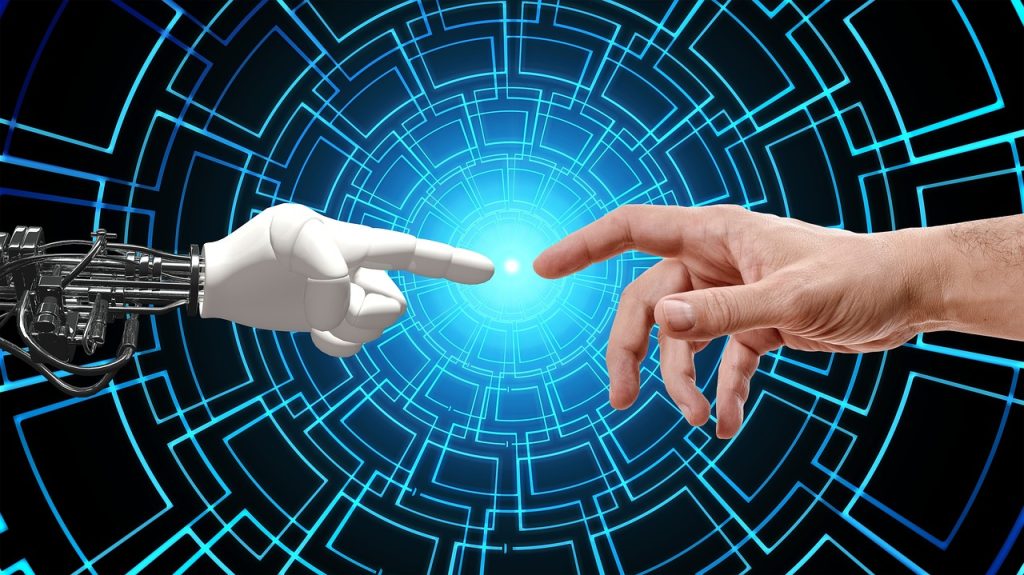Table of Contents
Artificial intelligence (AI) has transitioned from a futuristic concept to an integral part of our daily lives. Its presence is so pervasive that many of us interact with AI-driven technologies without even realizing it. From the way we communicate and shop to how we manage our homes and health, AI is fundamentally transforming our world. This article explores the various ways AI is embedded in our everyday lives and its profound impact on society.

AI in Communication
AI has revolutionized communication, making it more efficient and personalized. Virtual assistants like Siri, Alexa, and Google Assistant use natural language processing (NLP) to understand and respond to user commands, setting reminders, sending messages, and even controlling smart home devices. These assistants learn from user interactions, continuously improving their accuracy and usefulness.
Social media platforms also leverage AI to enhance user experience. Algorithms analyze user behavior to curate personalized content, recommend friends, and filter out harmful or irrelevant posts. AI-driven chatbots are another significant innovation, providing instant customer service on websites and apps, resolving issues, and answering queries round-the-clock.
AI in Shopping and Retail
The retail industry has been transformed by AI, particularly in e-commerce. Online retailers like Amazon use AI algorithms to analyze browsing and purchase history, enabling personalized product recommendations. These recommendations significantly boost sales and enhance customer satisfaction by presenting users with products they are likely to be interested in.
AI also optimizes inventory management and supply chain logistics. Predictive analytics forecast demand trends, helping retailers stock the right products at the right time. Additionally, AI-powered customer service bots handle inquiries and complaints, ensuring swift and efficient service.
AI in Healthcare
AI’s impact on healthcare is profound, improving diagnostics, treatment, and patient care. Machine learning algorithms analyze medical data to identify patterns and predict outcomes, aiding in early disease detection. For example, AI systems can analyze medical images to detect anomalies such as tumors with higher accuracy than human doctors.
Personalized medicine is another area where AI shines. By analyzing genetic data and patient history, AI can recommend tailored treatment plans, improving the efficacy of medical interventions. AI-powered virtual health assistants provide patients with health advice, medication reminders, and answers to medical questions, enhancing patient engagement and adherence to treatment plans.
AI in Finance
In the financial sector, AI enhances efficiency, security, and customer experience. Fraud detection systems use machine learning to identify unusual transactions and potential fraud in real time, protecting users from financial losses. AI also powers robo-advisors, which provide personalized investment advice based on an individual’s financial goals and risk tolerance.
Customer service in banking has been revolutionized by AI chatbots, which handle routine inquiries, assist with transactions, and provide financial advice. These chatbots are available 24/7, offering immediate assistance and reducing the workload on human staff.

AI in Transportation
AI is at the forefront of transforming transportation, making it safer, more efficient, and more convenient. Autonomous vehicles, though still in development, use AI to navigate roads, avoid obstacles, and make driving decisions. Companies like Tesla are pioneering self-driving technology, aiming to reduce human error, which is a leading cause of accidents.
Ride-sharing services like Uber and Lyft use AI algorithms to match passengers with drivers, optimize routes, and predict demand patterns. AI also powers traffic management systems in smart cities, analyzing data from various sources to manage traffic flow and reduce congestion.
AI in Home Management
Smart homes are becoming increasingly common, with AI playing a central role in home management. Smart thermostats like Nest learn user preferences and adjust heating and cooling settings automatically, optimizing energy use and saving costs. AI-powered security systems can recognize faces, detect unusual activities, and alert homeowners to potential security threats.
Home assistants like Google Home and Amazon Echo integrate various smart home devices, allowing users to control lighting, appliances, and security systems through voice commands. These systems create a more convenient, efficient, and secure living environment.
Ethical Considerations and Challenges
Despite its benefits, the widespread adoption of AI raises several ethical considerations and challenges. Privacy concerns are paramount, as AI systems often require access to large amounts of personal data. Ensuring that this data is handled securely and ethically is crucial to maintaining user trust.
Bias in AI algorithms is another significant issue. AI systems learn from data, and if this data contains biases, the AI can perpetuate and even amplify these biases. This can lead to unfair treatment and discrimination in areas like hiring, lending, and law enforcement.
The potential for job displacement due to automation is also a concern. While AI can create new job opportunities, it can also render certain jobs obsolete, necessitating retraining and upskilling for affected workers.

Conclusion
Artificial intelligence is undeniably changing our world, making everyday tasks more efficient, personalized, and convenient. Its applications span various domains, from communication and shopping to healthcare and transportation, significantly enhancing the quality of life. However, as we continue to integrate AI into our daily lives, it is essential to address the ethical and societal challenges it presents, ensuring that AI development and deployment are guided by principles of fairness, transparency, and accountability. The future of AI holds immense potential, promising even more innovative solutions to improve our lives and society.

